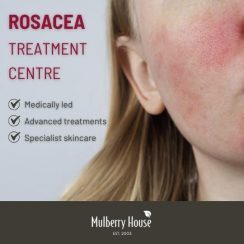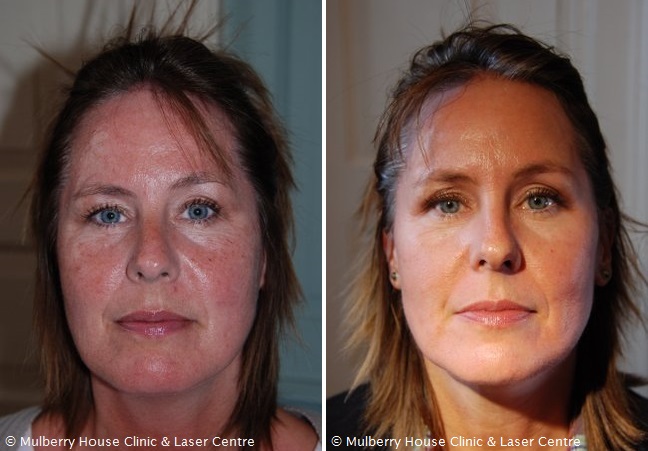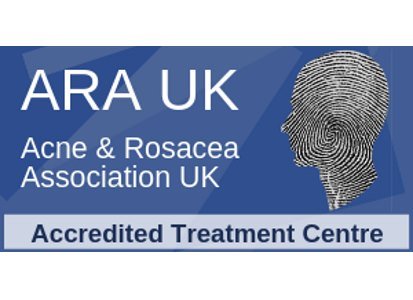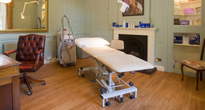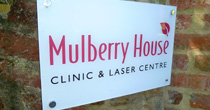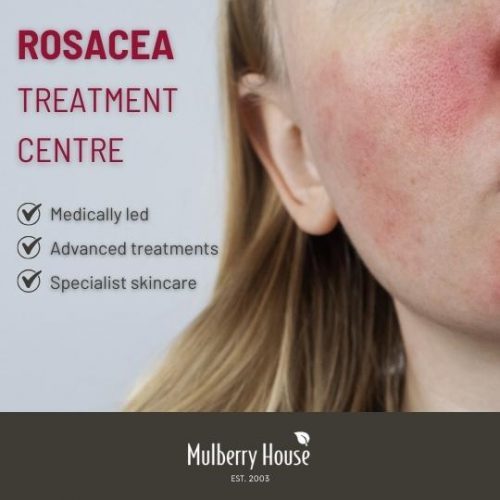
If this sounds familiar, you’re not alone. Rosacea affects an estimated 1 in 10 people worldwide. Women are slightly more prone to it than men, but it affects people of all ages, genders, and ethnicities.
Feeling the Burn: Why Winter Worsens Rosacea
While the exact cause of rosacea is still unknown, several factors contribute to its flare-ups, and winter seems to tick many of these boxes:
- Dryness: Winter air is notoriously dry, and sucks the moisture out of everything, including your skin. The lack of moisture weakens the skin’s barrier, making it more prone to irritation and inflammation. This is a recipe for rosacea flare-ups and redness.
- Temperature extremes: Stepping from a cold, dry outdoors into a warm, humid indoors can be a shock to the system for your skin. Equally, going out into the biting cold can also be a shock. These temperature changes can trigger vasodilation, the widening of blood vessels that causes rosacea flushing and redness.
- Cold wind: Wind can further irritate your already sensitive skin and worsen dryness and rosacea symptoms. Blustery winter winds can physically irritate the skin, causing stinging and burning sensations, exacerbating rosacea further.
- Indoor heating: The artificial heat we crank up indoors can also dry out your skin and trigger rosacea.
- Holiday indulgences: With all the festive treats around, it can be hard to resist, but unfortunately, these indulgences can lead to an unwelcome flush. Spicy foods, hot beverages, and alcohol are all common triggers for rosacea.
Treatment Options for Winter Rosacea:
The good news is, there are plenty of things you can do to keep your skin calm and comfortable over the winter months. Some are easy and cheap DIY fixes that you can try yourself at home:
- Moisturise and hydrate: This is your winter rosacea mantra. Choose a gentle, fragrance-free moisturiser and apply it liberally throughout the day. Look for ingredients like hyaluronic acid and ceramides, which help lock in moisture. Switch to a heavier product for more protection against harsh
- Humidify your home: Adding moisture to the air can help combat dryness and prevent flare-ups. Consider using a cool-mist humidifier in your bedroom and living areas.
- Protect your skin: Before venturing out into the cold, apply a broad-spectrum sunscreen with SPF 30 or higher, even on cloudy days and yes, even in winter. Windburn can be a major rosacea trigger, so apply a thick moisturiser or barrier cream on top for extra protection.
- Avoid triggers: Pay attention to what makes your rosacea worse and avoid those triggers. This might include spicy foods, alcohol, hot showers, and certain skincare products.
- Gentle exfoliation: Consider trying a gentle exfoliating product to help remove dead skin cells and prevent clogged pores, as this can contribute to rosacea flare-ups. Just be sure to choose a gentle exfoliator. Avoid harsh scrubs and don’t be tempted to exfoliate too often. A weekly or even monthly exfoliation may be all you need.
- Talk to an expert: If your rosacea is severe or doesn’t respond to home care, see a specialist skin expert. A doctor who understands rosacea can prescribe medical-grade cosmeceutical product that have extra ingredients to deal with your symptoms. There are also in-clinic treatments that could help.
Rosacea treatment options
At Mulberry House Clinic, there are a number of medical treatment options for rosacea. We’ve seen good results with in-clinic treatments such as IPL treatment and LED treatment. Microneedling can also be considered, as the use of tiny needles to create tiny holes in the skin can help to improve the appearance of the skin by stimulating collagen production. Microneedling is often used in combination with other treatments for rosacea.
In addition, at-home cosmeceutical skin care regimes designed to deal with rosacea have been effective in reducing the redness/flushing and promoting a healthier tone and appearance to the skin. Prescription Skincare incorporates active ingredients to help. The benefits could be antibiotic, anti-inflammatory, anti-parasitic, vasoconstriction, antimicrobial, retinoids and T-cell inhibitors. There is good clinical evidence demonstrating the value of appropriate daily skincare and we’ve seen excellent results with ZO Skin Health for our rosacea patients.
For best results, a combined approach is often best, where at-home skincare is supported by in-clinic energy-based treatments.
Before and after photos
Rosacea treatment at Mulberry House Clinic
Acne and Rosacea Association UK (ARA UK)
Mulberry House Clinic is the ONLY Accredited Treatment Centre of the Acne and Rosacea Association UK (ARA UK) within a 10 mile radius of Northampton.
To achieve the accreditation, Dr John Tanqueray completed additional specialist training in Acne and Rosacea.
Patients with rosacea can have confidence that they’ll find high standards of knowledge about the condition, an accurate diagnosis and a range of suitable treatment options.
Additional Resources:
The National Rosacea Society: https://www.rosacea.org/
Find out more about rosacea.
Mulberry House Clinic
Established 2003
Mulberry House Clinic has an excellent reputation in the Northampton area as an independent, doctor-led practice with over 20 years experience. Dr John Tanqueray is a former GP who can assess and diagnose skin conditions from a medical perspective before suggesting the most appropriate skin treatments. The offering includes top brand injectables and advanced technology that would rival that found in most Harley Street clinics.
A private consultation is the starting point for all patients in order to facilitate a full discussion about the desired results as well as detailed facial and skin assessment. Find out more about first consultation.
For further information or to arrange a confidential consultation, please complete our contact form, call 01604 702630 or email: info@mulberryhouseclinic.co.uk.
